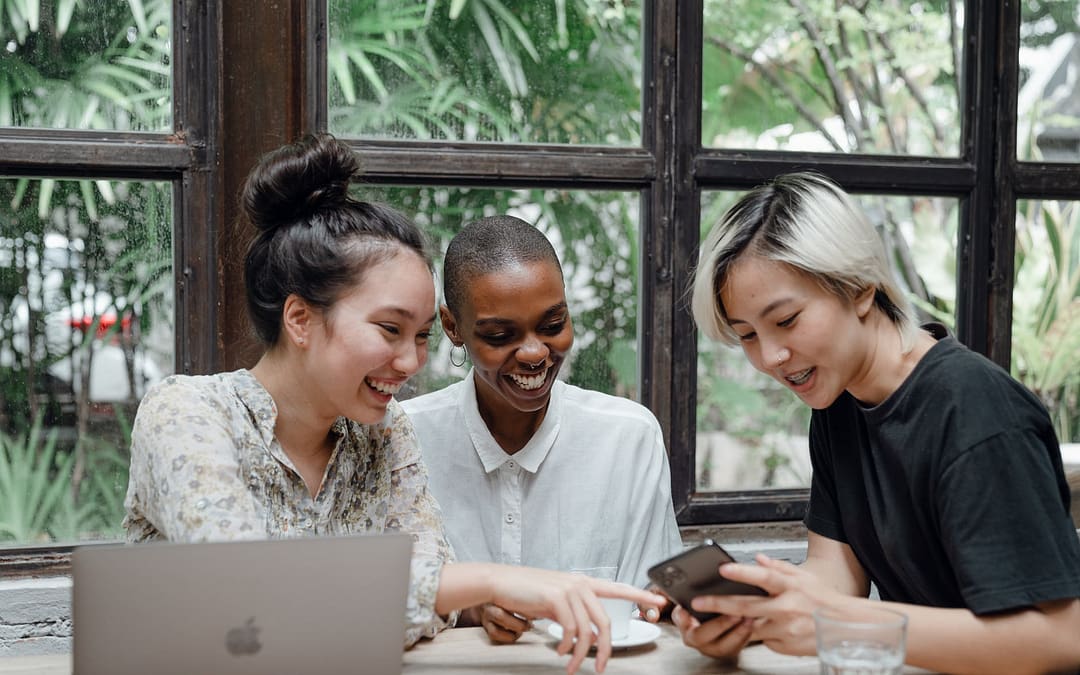Last updated on November 1st, 2024 at 12:42 pm
Learning how to get better at socializing is so important.
Learning how to get better at socializing is so important. Most people usually decide if they like someone, trust them, or want a relationship with a person within the first few seconds of meeting.
You might be asking yourself, “How can someone judge me in just a few seconds, how can I ever make friends?”
We hear you. However, you’re in control of influencing people’s impressions about you more than you think. Sometimes all you have to do is start practicing or learn a few tips, such as the ones we have below.
If you’ve ever said, “I don’t know how to socialize” or “I don’t know how to act in social situations”, then you’ve come to the right place.
However, if you think you need a solution now, check out our free toolkit you can use today. Get better at socializing now.
Now, let’s get started with 14 tips to help you learn how to get better at socializing. Or, get a quick fix with our video.
1. Find a social event where you think you’ll socially thrive
“I don’t know how to act in social situations!” If you’re saying this, then maybe the first thing you should think about is where you’re going to socialize. This makes a huge difference.
If you go to a social event with people you’re more likely to be compatible with, you’ll have a much higher chance of having better conversations and interactions with people.
A few places you might thrive socially:
- Meetup.com
- Art event
- Comic Con
- Cooking Class
- Chess Group
- Dog parks
Once you’ve figured that out, move on to the next tips.
Get Free Tools to Improve Your Social Skills
Conversation starters, best questions to ask, how to deal with anxiety, and more
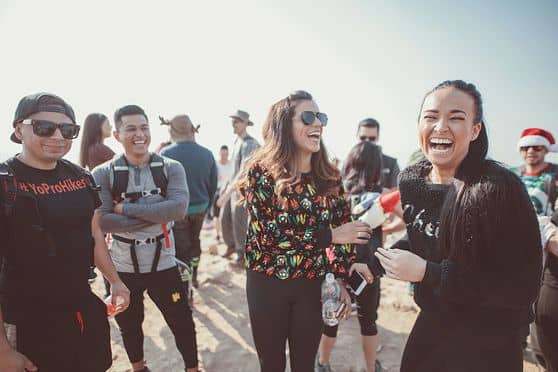
2. Have approachable body language
If you’re saying, “I don’t know how to socialize”, then you might just be a bit nervous. And that’s ok. It’s normal to feel anxious and tense up. Sometimes people might mistake your anxiousness for not wanting to talk. So try to be aware of how you look and what your body is saying.
Here are a few things you can try:
- Try to smile when you greet people.
- Project an open posture
- Make consistent eye contact.
In most social situations, people will look around the room and catch someone’s eye and will likely begin a conversation with that person if they make eye contact with them.
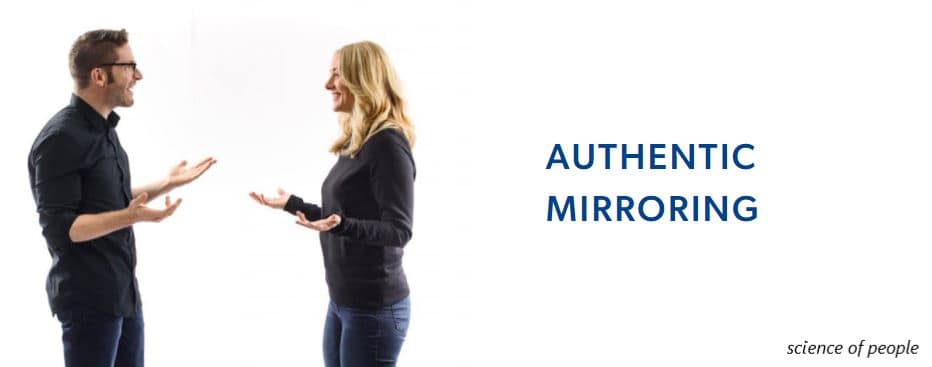
3. Be a friendly person by building rapport and trust
To meet people and make a good impression you have to try to be friendly. Creating rapport in our opinion means gaining trust, discovering compatibility and creating a shared experience. This isn’t easy and you shouldn’t put a ton of pressure on yourself to meet all of these expectations but you can definitely get there.
Remember, your body language and openness plays a part here when wanting to make friends and meet people.
Build rapport using body language:
- Using hand gestures
- Being empathetic
- Having a positive tone of voice
- Making eye contact
- Even saying their name will all help in building a great first impression and rapport.
Always keep in mind that people are attracted to others that are similar. One way you can find similarities is by using and learning small talk.

4. Learn how to get better at socializing with small talk
Maybe you dread small talk and you think it’s superficial but once you understand how to use it you’ll realize how important it is.
Why do you need small talk?
- Two people need to “warm-up” to get comfortable with each other.
- You’re showing that you’re friendly and approachable.
- You can’t start a conversation with “what’s the worst thing that’s happened in your life?”
- Research says you’re happier talking to people, even if it’s small talk.
Initiate small talk by:
- Finding a common or at least an interesting topic:
- Revealing something about yourself:
- Observing what’s around you. Talk about your environment you’re in
- “Hey, good morning! I’m Sasha. Since I see you every day here at the office I wanted to introduce myself.”
- “Hey! What do you think of the weather today? It’s definitely a beach day.”
- “Hey Josh, how are things going over at the customer service department today?”
- “Hey! I’m really looking forward to drinks after work today. I hear Sasha will be coming with us too!”
A few small talk topics that are easy to use:
- Art
- Sports
- Entertainment(Movies, TV shows, Local restaurants, Music, Books)
- Food, restaurants, or cooking
- Travel or local favorites
Get Free Tools to Improve Your Social Skills
Conversation starters, best questions to ask, how to deal with anxiety, and more
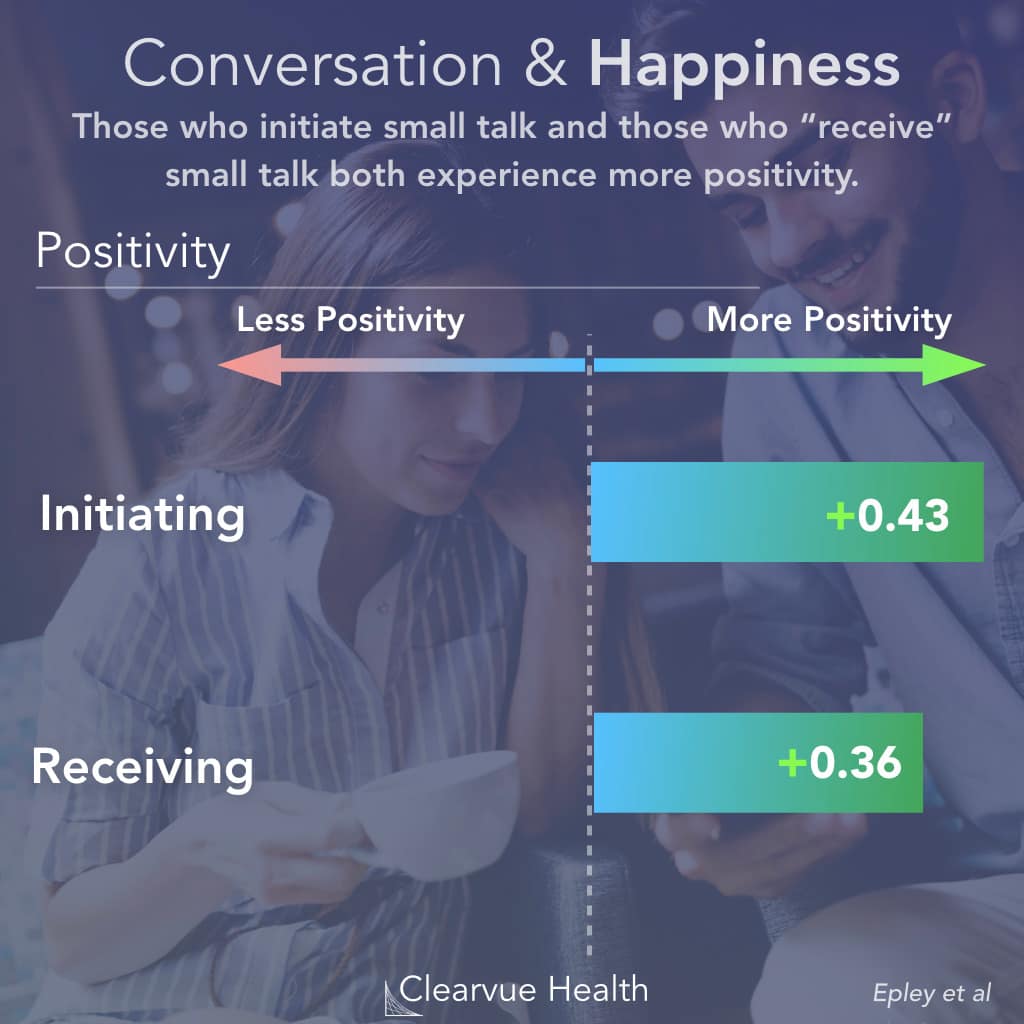
5. Get better at socializing by actively listening
Take turns talking. Don’t dominate the conversation but actively listen which means to be present and aware of the person you’re speaking to.
You can do this by:
- Giving them your undivided attention is a huge compliment.
- Nod your head, smile, point your body in their direction.
- Put yourself in their shoes.
- Paraphrase to show understanding.
- Lean forward
- Offer verbal affirmations such as “I agree,” “I know,” or “I understand”
6. Use conversation threading to socialize better
Conversation threads are questions followed up by more in-depth questions related to the topic you’re talking about.
For example:
Ask the question, wait for the person to answer, and then follow up with another interesting or open-ended question.
Here are a few more examples:
- “What do you do for work?” followed by “What kind of work does that entail?
- “Did you have a good Friday night?” followed by “What kind of fun did you get into last night?”
- “Did you like the restaurant?” followed by “What do you recommend eating there?”
We also have a great post about conversational threading here.
7. Don’t be afraid to share things about yourself
It’s common for people to only ask questions and not talk about themselves. This is a mistake.
Share little tidbits of information about yourself because it shows you’re a real person and have experiences. This will make people you just feel more comfortable opening up about themselves too.
You might be saying, “I hate talking about myself” or “I’m not interesting.” We’ll if you’re compatible with someone, we think you’ll have plenty to say.
People not only like to talk about themselves but they also like a back-and-forth of a conversation, which truly creates a spark between people. This is an important piece when learning how to get better at socializing.
Here are some examples of how you can share a little bit about yourself.
- “Yeah, I used to work in finance as well and it was tiring but I’m happy I did it. I learned so much”
- “I love the beach too. That’s why I enjoy traveling to Mexico to visit my cousin. They live close to the water and I enjoy spending time there.”
- “I really enjoy listening to electronic dance music. I’m going to a festival in Europe called Forest Dreams.”
Then, after you’ve opened up a little bit about yourself, you can ask them a related question, or they’ll probably follow up with a question about something you just said.
Get Free Tools to Improve Your Social Skills
Conversation starters, best questions to ask, how to deal with anxiety, and more
8. When comfortable, ask deeper questions
To take the conversation to the next level ask deeper and more meaningful questions.
You don’t want the boring “Where are you from?” type of questions. But you want to try to be different, which will help keep the conversation going.
Not all of these questions will work in every situation, but they will greatly improve your conversations and will help lead into other deeper parts of conversation.
You want to use open ended questions that start with:
“Tell me about …”
“What was it like …”
“How would you go about that …”
There are examples of how you can start an open ended question to go deeper into a conversation. Once you get this down, you’ll feel the conversation and even the relationship shift to a new level.
More open ended questions:
- What are some personal projects you’re working on?
- Working on anything outside work?
- Tell me about your week? What was it like?
- Tell me more about your weekend? What was the best part?
- How did you end up here in NYC?
- Any recommendations for activities around here?
9. Know how to move on from a conversation
End the conversation as gracefully as possible. Below are some examples.
- “It was great meeting you! I’m heading out. Take care.”
- “Do you know where the bathroom is?
- “I’m going to get another drink.Thanks for the chat, I’ll see you around.”
- “I’m so glad we met but I need to run soon!”
- “My goal is to meet at least one more person. Who would you suggest I talk to next?”
- “Hi, this is ____,” (Introduce someone else into the conversation)
- “It was great catching up with you. We’ll talk soon, I’m sure”
These “exit” lines are all adaptable and can be used in almost any situation. Keep in mind that the goal is to connect, meet people, and have meaningful conversations.
10. Ending a conversation the right way
Learning how to have a good conversation is obviously important especially when trying to make friends and be likable.
First, decide if you want to continue a conversation or have some type of relationship with this person. You usually sense if there is a connection within the first conversation.
Next, if you want to establish a deeper meaningful relationship with someone – Simply ask the person if they want to continue speaking another time.
Save this strategy for people with whom you feel a real connection.
Here are some things to say:
- “Because you’re visiting for the first time, I’d be happy to show you around.”
- “Since you’re going to NYC for vacation, I can send you a list of my favorite local restaurants. And if you want to meet you can message me.”
- “Hey, want to grab some coffee to chat about [insert topic here]”
- “Here’s my info. If you want to talk more, I’d be happy to chat.”
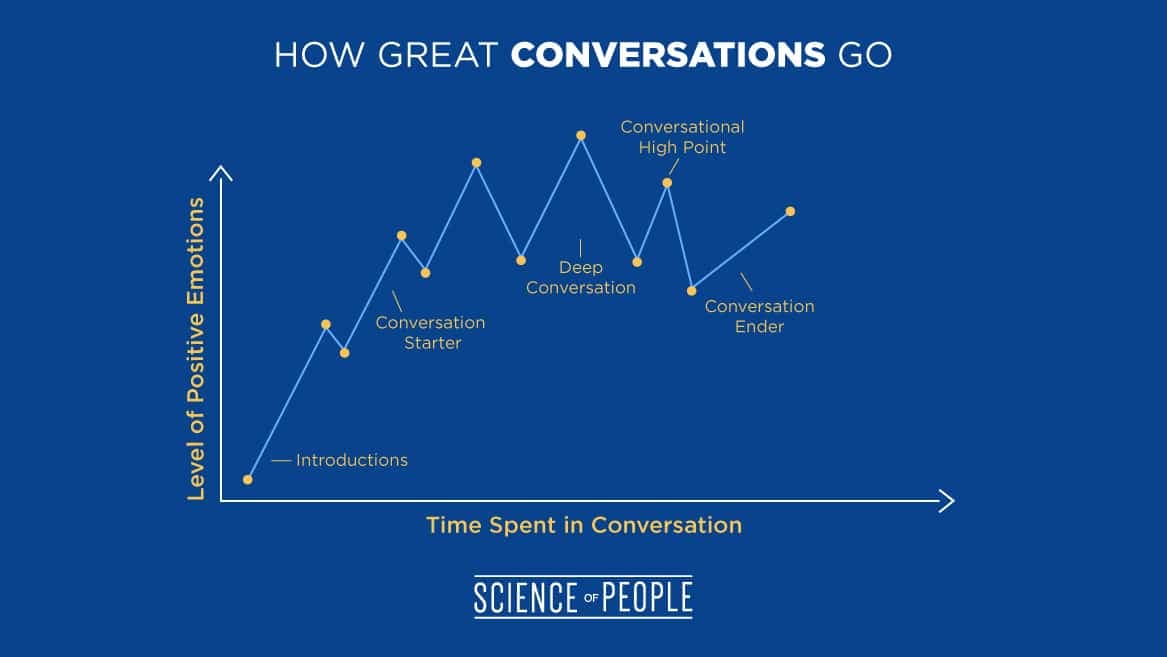
11. “I don’t know how to socialize” Feeling Low Self-Confidence
Your thoughts can go a long way when you’re trying to get to another place in life. And that includes learning how to get better at social interactions.
If you feel rejected, burnt out or aren’t sure about what to say, you may be feeling low self-confidence. And, if you want to learn how to get better at socializing, managing your low self-confidence is an important task to take on. It’s a big hurdle to get over when you want to get better at social interaction.
One tip to overcome low self-confidence is to be aware of your thoughts and what you think about yourself. This includes what you tell yourself (self-talk). Try to avoid seeking approval or validation and comparing yourself to others. Be fair to yourself and make accurate evaluations and goals.
12. You might have the awkward silence moment
It’s all about how you react to the silence. Take a deep breath, and remain as confident as possible and have a few questions ready in case there is a long pause.
Also, silence is ok, embrace it and try to manage any anxiety. A few seconds of silence isn’t that big of a deal if you don’t make it one. End the conversation or move on to your next question.
Get Free Tools to Improve Your Social Skills
Conversation starters, best questions to ask, how to deal with anxiety, and more
13. Reflect when learning how to socialize better
After you’re done socializing, take some time to reflect. You can do this by talking to a partner, friend, or writing in a journal. What did you learn? What did you do well? What can you improve on? Did you have fun? Who should you follow up with?
Once you’ve reflected on how you socially interact with people and these tips, using them in your everyday life, you’ll start to feel that you’re finally learning how to get better at socializing.
14. Come ready with conversation starters
Be prepared and brainstorm a few topics or questions that can help you easily start conversations with new people.
Having a variety of conversation starters in your back pocket can transform your conversation. Once you do, you’ll see how easy it is to form connections with co-workers, customers, partners, or anyone you meet at a social event.
What else can you do right now?
- Talk to a close friend about the feelings you have about how you feel when you socialize.
- Get professional help.
- Prepare more when you go out to socialize
- Download our Tool Kit for free (mini-course, blueprint, and more)
You got this!
